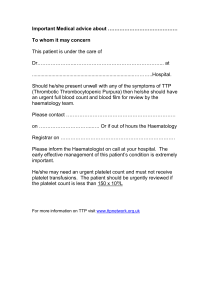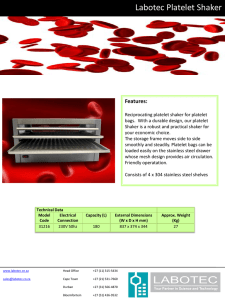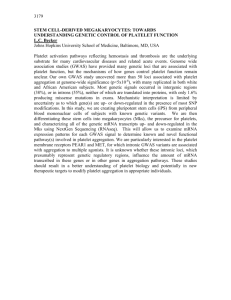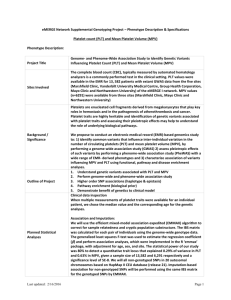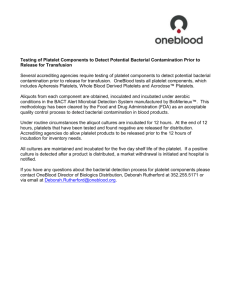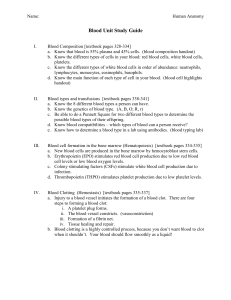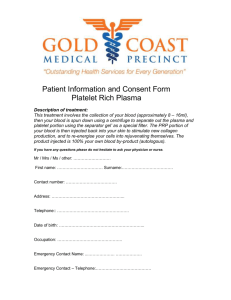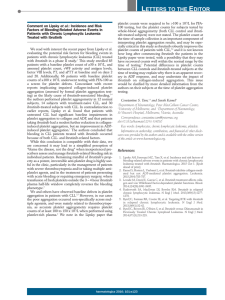a genome-wide association study of platelet
advertisement
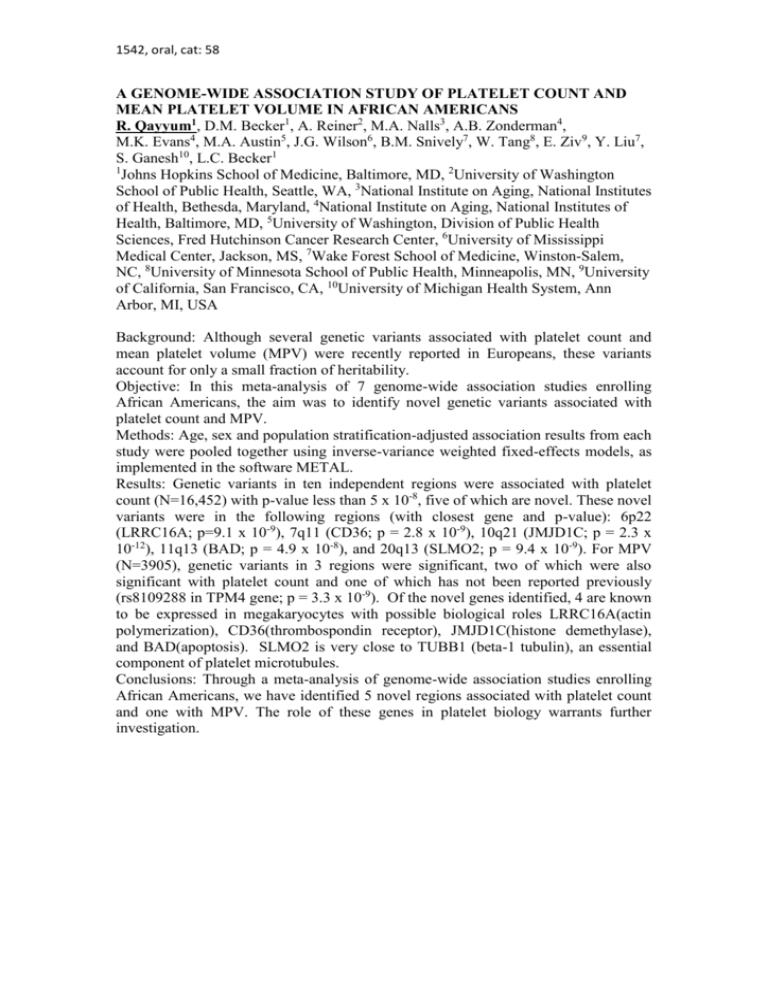
1542, oral, cat: 58 A GENOME-WIDE ASSOCIATION STUDY OF PLATELET COUNT AND MEAN PLATELET VOLUME IN AFRICAN AMERICANS R. Qayyum1, D.M. Becker1, A. Reiner2, M.A. Nalls3, A.B. Zonderman4, M.K. Evans4, M.A. Austin5, J.G. Wilson6, B.M. Snively7, W. Tang8, E. Ziv9, Y. Liu7, S. Ganesh10, L.C. Becker1 1 Johns Hopkins School of Medicine, Baltimore, MD, 2University of Washington School of Public Health, Seattle, WA, 3National Institute on Aging, National Institutes of Health, Bethesda, Maryland, 4National Institute on Aging, National Institutes of Health, Baltimore, MD, 5University of Washington, Division of Public Health Sciences, Fred Hutchinson Cancer Research Center, 6University of Mississippi Medical Center, Jackson, MS, 7Wake Forest School of Medicine, Winston-Salem, NC, 8University of Minnesota School of Public Health, Minneapolis, MN, 9University of California, San Francisco, CA, 10University of Michigan Health System, Ann Arbor, MI, USA Background: Although several genetic variants associated with platelet count and mean platelet volume (MPV) were recently reported in Europeans, these variants account for only a small fraction of heritability. Objective: In this meta-analysis of 7 genome-wide association studies enrolling African Americans, the aim was to identify novel genetic variants associated with platelet count and MPV. Methods: Age, sex and population stratification-adjusted association results from each study were pooled together using inverse-variance weighted fixed-effects models, as implemented in the software METAL. Results: Genetic variants in ten independent regions were associated with platelet count (N=16,452) with p-value less than 5 x 10-8, five of which are novel. These novel variants were in the following regions (with closest gene and p-value): 6p22 (LRRC16A; p=9.1 x 10-9), 7q11 (CD36; p = 2.8 x 10-9), 10q21 (JMJD1C; p = 2.3 x 10-12), 11q13 (BAD; p = 4.9 x 10-8), and 20q13 (SLMO2; p = 9.4 x 10-9). For MPV (N=3905), genetic variants in 3 regions were significant, two of which were also significant with platelet count and one of which has not been reported previously (rs8109288 in TPM4 gene; p = 3.3 x 10-9). Of the novel genes identified, 4 are known to be expressed in megakaryocytes with possible biological roles LRRC16A(actin polymerization), CD36(thrombospondin receptor), JMJD1C(histone demethylase), and BAD(apoptosis). SLMO2 is very close to TUBB1 (beta-1 tubulin), an essential component of platelet microtubules. Conclusions: Through a meta-analysis of genome-wide association studies enrolling African Americans, we have identified 5 novel regions associated with platelet count and one with MPV. The role of these genes in platelet biology warrants further investigation.
